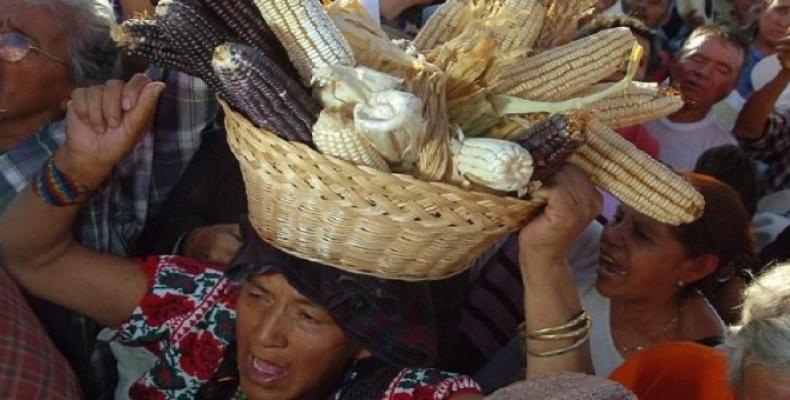Mexico City, November 10 (teleSUR-RHC)-- The controversial Trans-Pacific Partnership is slated to hit Mexico with more food insecurity and hard times for farmers by extending tariff exemptions to more countries.
Basic grains, eggs, tuna, salt, oils, fruits, vegetables, and even bulbs of the agave plant, famed in Mexico for its use in traditional tequila making, are all products that could be imported to Mexico without tariffs under the TPP, Mexico’s La Jornada reported on Monday.
Although the United States and Canada already enjoy tariff breaks through the North American Free Trade Agreement, the TPP would extent the exemption to all countries involved in the 12-nation transnational trade deal.
Nine countries will also be able to export limited quotas of milk and dairy products to Mexico without paying tariffs, which could pose a threat to the country’s already sensitive dairy industry.
According to Mexican farmers, the TPP would be a disaster for local agriculture and could destine the sector to a total collapse.
The TPP’s aggressive free trade agenda, described by some as a NAFTA on steroids, would worsen the economic, food security, and agricultural challenges Mexico has already struggled with since NAFTA came into effect in 1994.
NAFTA critics have long said the free trade deal between Mexico, Canada, and the United States negatively impacted food security and undermined Mexican farmers. With local markets increasingly flooded by cheap, foreign-subsidized imports, such as corn and other basic grains, Mexican farmers could not complete. In the U.S., NAFTA resulted in more inequality and major job losses.
Now with the TPP looming, not only will Mexico be on the receiving end of waves of tariff free imports, but participating member states have also refused to reduce subsidies to major agribusiness corporations involved in international trade. With cheaply produced imported crops on the market, local farmers may get pushed out, unable to compete with subsidized products.
While free trade supporters and TPP proponents defend subsidies as essential to staying “competitive” in the global market, Mexican farmers have slammed subsidies for contributing to keeping them in poverty.
Last week, rural organizations urged the Mexican government to redistribute the 2016 budget in favor of small-scale agriculture, the antithesis of the agricultural model promoted in the TPP.


